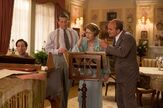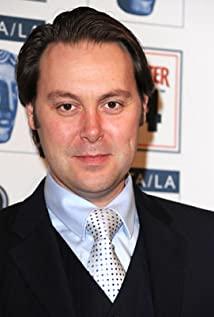Liu Songtao / Article
"People may say that I sing badly, but no one can say that I have not sung."
Florence Foster Jenkins (1868) -1944), a social man who was active in the social circle of New York at the beginning of the last century, a patron who is keen to support the cause of art, a girl who played the piano in the White House, a lady who had a rough love road, A cosplay lover who is passionate about fantasizing that he is the star of an opera so he puts on flamboyant costumes at home, a singer—an amateur singer.
Ms. Florence is probably the most cult figure in the Philharmonic circle at the beginning of the 20th century. We seem to have known her story before, but we also find it very legendary: her frenzied singing skills, her benevolent philharmonic career, and she left behind for future generations. The confusion of "choose to live in a lie or treat a lie as a real life" seems to be the birth of such a wonderful (or weird) character in New York, which was full of noise and restlessness in the early twentieth century.
The 2016 movie "The Queen of the Run" is based on the story of Florence in the last few years of his life, with three starring actors-Oscar actress Meryl Streep (Meryl Streep) and British lover Hugh Grant (Hugh Grant) and Simon Helberg (Simon Helberg), who became popular because of "The Big Bang Theory"-the celebrity faces, moved the amateur soprano's exciting and moving philharmonic career On the screen.
Philharmonic Life
Florence was born in a wealthy family in Pennsylvania in 1868. The family was sitting on a large area of land. His father had been rich and young since he was a child. Later, after becoming a lawyer, he became a member of the local upper class. Florence loved art since he was a child, and it is said that at the age of 7 he played piano for Rutherford Hayes, the then President of the United States, at the White House.
After graduating from high school, Florence wanted to go to Europe, the stronghold of classical music at the time, to continue to study music, but either emphasized pragmatism, or was reluctant to travel by the only daughter. His father refused Florence's request. Florence eloped with Mr. Jenkins, who was 16 years older than him, and got married in 1885. In the second year after marriage, Florence was infected with syphilis by her husband. She immediately cut off contact with Jenkins, but the syphilis caused her hands to have problems, and she had to say goodbye to her dream pianist career. .
She moved to New York with her mother in 1900, and in 1909 she met her lifelong partner, St. Clair Bayfield (St. Clair Bayfield). In the same year, Florence’s father died. As the only daughter, Florence inherited her father’s inheritance. So she began to fund music activities generously, hired famous teachers to learn vocal skills, held private concerts, and even founded in 1917 He established the Philharmonic Organization of the "Verdi Opera Club" and appointed himself as the club chairman. After the establishment of the club, the number of members quickly reached 400, and even the famous tenor Caruso was an honorary member of the club.
In the backstage of the concert hall, you can often see the kind of vulgar businessmen who want to entertain musicians to show off with others if they have a little money, or take pictures with musicians to show off all over the world, "He/she is my best friend." "The nouveau riche, Florence obviously does not belong to this list. She has a warm and sincere attitude towards artists. Although many people in the music industry dare not compliment her voice, they treat her as a friend. In Florence's address book are Lily Pons, Caruso, Sir Beecham, and Cole Porter. Through her generous funding, deep participation, charismatic organization, and enthusiastic agitation, she has been loved by the entire New York music industry.
——Even if her singing level is so low.
Le hinder human voice
Florence's piano skills is not low, but syphilis infection makes her hand lost control, more seriously, syphilis also gave her hearing brought a huge problem. After bidding farewell to the piano, Florence began to focus on singing, but her pitch, rhythm, and breath clauses were all miserable.
For ordinary people, if you want to sing a certain piece of music, compared to professional singers, although the timbre is undoubtedly far different, the high-pitched part and the dazzling passage are definitely not strong, but most of the passages, ordinary people still To be able to sing simply, at least in some basic aspects such as tune and intonation, will not deviate too far from the original. But Florence's singing is completely subversive. As far as the recordings we can hear today, her singing accurately defines the concept of "pentatonic insufficiency".
Florence usually sings with a lower pitch than it should be, barely mastering any ventilation skills in any sense (which also makes her singing full of inexplicable pauses), and the rhythm is so varied that her piano The accompaniment must use a lot of rubato skills to match (accommodate) her singing. In the handed down recordings, we can hear Florence’s steel partner Cosmé McMoon having to do a lot on the piano. It is urgent to remedy Florence’s singing flaws by accommodating the accompaniment pattern, transposition, falling pitch, splitting, and forced "blank" in chapters-in terms of the degree of piano improvisation in the recording, every time Florence Singing should also have great randomness, otherwise Gangbang wouldn't be so rushed.
What's interesting is that with such a wonderful singing level, Florence could not sing even simple songs well, but she is keen to choose to sing those super difficult songs, such as the classics of Mozart's "Magic Flute". "The anger burns in my chest", or "Adele's Joke" in Strauss' operetta "Bat".
Once Florence's taxi collided with another car, and the frightened Florence screamed. After returning home, she confirmed on the piano that she had just called High F, which she had never sung before (at least she thought so). Florence was ecstatic, not only did not prosecute anyone, but also gave the taxi driver a pack of expensive cigarettes to thank him for his divine assistance.
Maybe it was because I couldn't bear to save the lady's face, maybe because I really didn't understand classical music, and the friends around Florence rarely pointed out the problems in her singing. His friend, composer, Cole Porter, every time he listened to her singing, he had to poke his foot with a stick to avoid laughter. It is worth noting that Porter would not miss every Florence music. Can. And another opera god Caruso, although he has only listened to Florence’s performance once, he also left his comment backstage: “I’ve never heard such a singing in my life.” Of course, Florence played This was regarded as a sincere compliment to her.
Florence published his own record at his own expense before his death. After her death in 1944, the precious recording she left to the world was republished twice in 1954 and 1962. After the resurgence of Florence fever in the 1990s, both Sony Classical and Naxos dubbed her records. When Sony Classical was republished in 1992, they gave the record an ironic name: "The Glory of Vocal Singing (Hehe) ...)" (The Glory [????] of the Human Voice); and Naxos was not reconciled. They named the album "Florence and her friends: Together against Murder on the High Cs (Florence Foster Jenkins & Friends: Murder on the High Cs).
In 2004, the good news company Homophone Records made a very destructive project. They published Florence and 11 other works that sang in car accidents (in addition, they also included the piano accompaniment Mark for Florence). A brief interview with Moon), named: "The Muse Surmounted: Florence Foster Jenkins and Eleven of Her Rivals" (The Muse Surmounted: Florence Foster Jenkins and Eleven of Her Rivals). The publication of the record caused quite a bit of controversy. In addition to people feeling that it was too unkind to consume Florence in this way, the record also included Duscha, the teacher of the black soprano singer Jessye Norman (Jessye Norman). A car accident recording by Alice Gerstl Duschak-Duschak is a well-deserved master of vocal music education, but when the master also performs abnormally, a considerable number of music fans are very upset by the record company because of a gimmick, Duschak and Duschak Florence and others conflated.
Dirge of life
Florence knew he sang bad? In the movie "The Queen of Running Out", before she died, she was completely immersed in her own vocal singing art. The people around her also kindly or spoiled her "lied" her to make her live. In your own world of philharmonic music. Aunt May's version of Florence is innocent, with a child-like innocent mind. Although she occasionally reveals a trace of melancholy and sentimentality, most of the time she is a little princess who lives in the care of everyone around her, never knowing How terrible one's own singing can be.
In 2015, the French film "Margaret", which was based on Florence, showed that Europeans showed their aversion to spiritual chicken soup. In this film, the people around Margaret isolated Margaret from the truth for self-interested purposes. Some of them coveted her sponsorship, some coveted her property, and some others coveted it out of politeness. Some people were out of foolishness and loyalty. When the song ended, she finally understood the truth. She was ignorant before but suddenly realized.
The real world is far more indifferent than movies. Logically, even if Florence didn't know how bad she could sing, she at least knew she didn't sing well. Florence also had a piano accompaniment in the early years, Edwin McArthur (Edwin McArthur), but because during the performance, MacArthur and the unhappy audience met with each other and smiled knowingly, Florence fired in angrily The pianist who pierced the "Emperor's New Clothes".
For most of the concerts in Florence's life, the audience source was strictly controlled. Her singing parties are generally held in her residence, private clubs and the ballroom of the Leeds Carlton Hotel. Guests are carefully selected and privately invited listeners. They are either members of the Verdi Opera Club run by Florence. Or a friend who has a deep friendship with Florence in the upper class. There are no people who don't know Florence, and music critics are not even invited. The music reviews in the newspapers the next day were mostly written by her friends (or herself)-it is hard to imagine a person who is truly proud of his vocal level, who would be so secretive about the composition of the audience.
And she once said to her friends during her lifetime: "People may say that I sing badly, but no one can say that I haven't sung."-We can almost conclude that Florence is behind this defensive rhetoric. There is no hidden self-knowledge.
In 1944, Florence finally rented the Carnegie Hall to complete her first performance in her life. Tickets for the performance were sold out a few weeks ago, and people came to watch this "pre-announced" performance of the century. There are about 2,000 spectators who can only wait outside the concert hall because they have no tickets, and the performance scene is even more celebrities. But the miracle in "Nuremberg Famous Singer" did not appear. More than 3,000 spectators at the scene without "careful selection" coaxed into a group, and a famous actress was framed out of the box because of her laughter.
And the major newspapers the next day were full of mocking music reviews. All this completely destroyed Florence. Five days later, she had a heart attack and fell in a music score shop. A month later, she died. The story of the
philharmonic cult
Florence was silent for nearly half a century, but suddenly returned to people's vision in the 1990s.
In 1994, the play "Precious Few" with Florence as the protagonist was staged in Little Rock, Arkansas, U.S., followed by Cape Town, South Africa, Edinburgh Festival Fringe, U.K., and the U.S. In the next 10 years, Broadway staged the story of the queen of tune-the title is also more straightforward: the Cape Town version of the play is called "Goddess of Song", the Edinburgh version is called "Opera" "Viva La Diva" (Viva La Diva).
In 2005, the West End of London staged the title "Awesome! "(Glorious!) plays Florence by Maureen Lipman (Maureen Lipman), a famous drama actor and winner of the Order of the Commander of the British Empire. The performance was a huge success, and even nominated for the best comedy nomination for the Olivier Award, the highest award in the British theater industry, and was later staged in more than 40 countries in 27 languages.
In June 2015, a 52-page little book called "Florence Foster Jenkins: The Diva of Din" was published. One year later, an expanded version of this book ( 208 pages) was published by Overlook Press, and the subtitle of the book was changed to a more intimate "The Life of the World's Worst Opera Singer" (The Life of the World's Worst Opera Singer).
In the last ten years, there have been 4 films to interpret Florence: 1) The documentary "Florence Foster Jenkins: A World of Her Own" (Florence Foster Jenkins: A World of Her Own, 2007), 2) French adapted from Florence's life "Marguerite" (Marguerite, 2015), 3) "Running Divas" (2016), and 4) by the famous American soprano Joyce The documentary "The Florence Foster Jenkins Story" (The Florence Foster Jenkins Story, 2016) explained by Joyce DiDonato.
Why does this amateur "singer" with pentane insufficiency get such a high degree of attention in the past 20 years? She swept the theater, film, and publishing worlds like a virus.
Florence's re-popularity may be an accident for her, but for popular culture, it is an inevitable. In Florence's fan group, not only are the musicians who have made friends with her at the same time, but she has also been highly praised by future generations. The British rock star David Bowie, who has just passed away this year, heard Florence's record when he was 15 years old, and then claimed that the record "changed his life." Barbra Streisand (Barbra Streisand) even said in an interview in 1968 that Florence and Ray Charles (soul music, blues master) are her two most favorite musicians.
The mass culture of the 20th century has undergone turbulent changes. Classical music has been irrefutable decline, replaced by jazz, rock and other popular music. The main consumer groups of music have gradually evolved from churches, princes and nobles, and the bourgeoisie. The "democratization" process with the general public as the main body. The high and low opera art has been extremely marginalized in the music market. However, the musical expression of “participation” and “conspiracy” represented by Florence is not the same as the KTV, karaoke, and grassroots shows that emerged in the 1990s. The attributes of other media coincide with each other. The ordinary people in the KTV soundproof box who are intoxicated by their own key down singing not only represent the main theme of the era of protruding self (or narcissism), but also delegate the power of “singing with the microphone” (to a certain extent) to In the KTV private room, everyone is a singer and everyone has an audience.
Florence undoubtedly brought the era of KTV and karaoke to the beginning of the 20th century. She was indulged in narcissistic vocal expressions, and she also has a group of listeners who are willing to listen to her singing. As far as economic conditions are concerned, she is an undoubted power; but as far as artistic standards are concerned, she is undoubtedly grassroots. People inadvertently took over the wealth of her willful family fortune, but they couldn't help but appreciate her innocence, her courage, and the grass-roots Maiba spirit that she interprets the singing skills of the Liba people from the temple art of spring and snow.
The entertainment of this era belongs to the general public. People are happy to exercise their power to elect a "super girl", and people are also happy to see his shameless aunt next door making a blockbuster. Whether it was Aunt Susan, who was ridiculed by the audience judges, who exchanged her golden voice for a full house of applause, or the controversial Zeng Yike caused the whole people to complain, the popularization of art entertainment belongs to the grassroots counterattack. Florence’s counter-attack popularity happened to fully meet the psychological expectations of this era. The worst opera soprano in history is like a prophet, fragmenting the classical music that is about to decline, but using her Self/narcissism, self-confidence/arrogance, pride/arrogance heralds the coming of the era of "art democratization".
View more about Florence Foster Jenkins reviews











